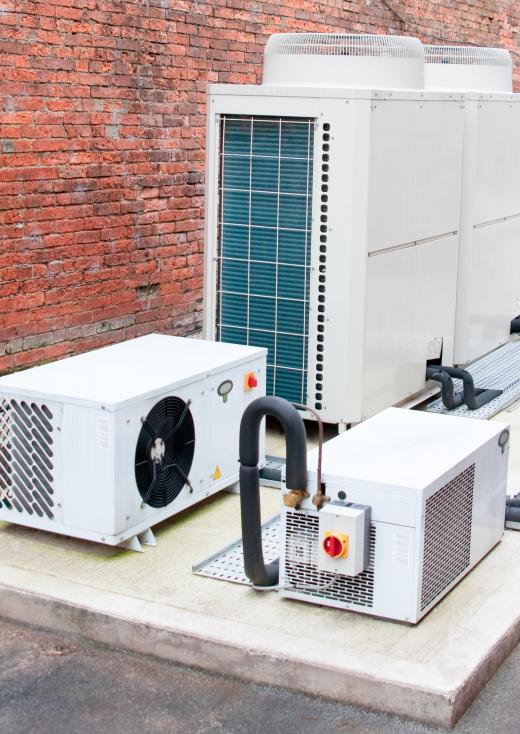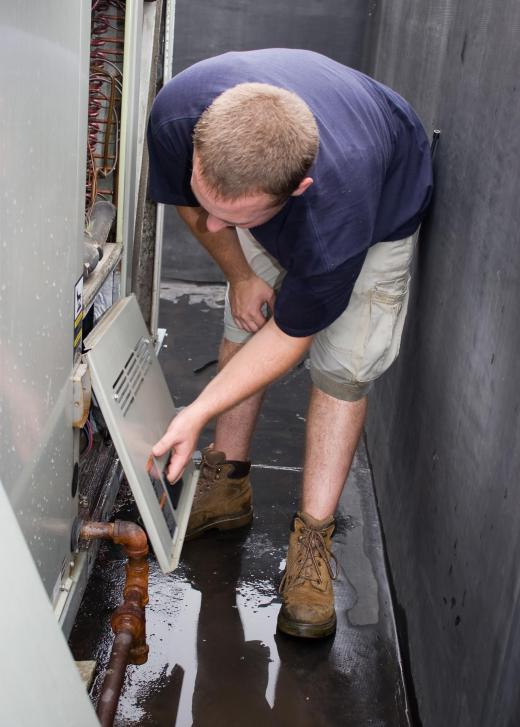What Is HVAC Engineering?
HVAC engineering is the application of science and math to the creation of heating, ventilation, and air conditioning systems. This career area falls under the umbrella of mechanical engineering, which deals with developing and manufacturing machines. Industry workers produce HVAC systems that go in residential settings or even industrial or commercial buildings. Engineers in this industry typically choose to specialize in the area of heating, air conditioning, or ventilation.
Design constitutes a major part of the multi-faceted HVAC engineering industry. Professionals in this field are responsible for using computer-aided design software to draft how HVAC systems should look and operate. They aim to get an idea of how HVAC systems need to be fabricated and then make necessary alterations to their plans before the construction phase of the projects begin. Creating designs to use as blueprints is important in HVAC engineering because builders use these technical drawings to know how to correctly manufacture these complicated products.

When working in this career area, individuals must have a thorough understanding of how these types of systems function. Heating systems can be powered either by gas or electricity, and HVAC engineers have to identify and determine the effectiveness of different system options. They also need to be able to select the optimum HVAC system to go into particular homes or businesses depending on its energy-efficiency level. Professionals in HVAC engineering often are involved in completing energy audits, during which they analyze the cost of installing an HVAC system in an establishment and compare it to the savings that a client will receive through improved energy usage.

This business area also involves frequent testing to ensure that products are up to par with organizational standards. HVAC engineers often have to figure out why a particular component in a system failed to operate correctly and test manufactured HVAC products to make sure that they remain high in quality for customers. Financial and time management responsibility is necessary in HVAC engineering because engineers usually must determine the costs of fixing HVAC system failures and the hours of work involved in these activities.
To complete training that prepares a person for this field, an individual must enter a four-year bachelor’s degree program in the area of mechanical engineering. College applicants have to turn in transcripts of their high school courses along with their high school diplomas or the equivalent certifications to their schools’ admissions teams. An aspiring HVAC engineer also needs to submit standardized test scores and complete his or her chosen school’s enrollment form.
AS FEATURED ON:
AS FEATURED ON:












Discuss this Article
Post your comments